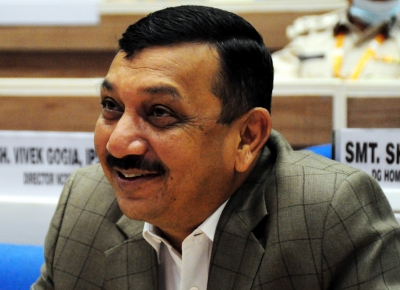New Delhi: Prime Minister Narendra Modi recently expressed his government’s unwavering support for central probe agencies in the fight against corruption, emphasising his determination to combat corrupt practices.
He made this declaration of intent at a gathering to celebrate the 60th anniversary of the Central Bureau of Investigation (CBI), where he encouraged officers to not be deterred by the power of the corrupt and the environment they create to undermine the credibility of investigating agencies.
The Prime Minister’s high standards, however, don’t seem have been applied in the selection of the current CBI director, Subodh Kumar Jaiswal. He was appointed by a high-level committee that included the Prime Minister himself.
The committee seemed to have overlooked the strictures passed by the MCOCA (Maharashtra Control of Organised Crime Act) Court and the Supreme Court of India against Jaiswal when he was the DIG of the SIT (Special Investigation Team) probing one of the biggest cases of corruption in its time — the Telgi fake stamp paper scam, which unspooled between 2001 and 2004.
The observations came during the Supreme Court in Criminal Appeal No 523 of 2005, arising out of SLP (Cri.) No 3879 of 2004 (Ranjit Singh Sharma vs State of Maharashtra and another respondent).
“So far as the inspection of Cuffe Parade flat is concerned, the High Court failed to notice that at the time of inspection of the flat Jaiswal could have taken certain action which he did not. At least he could have seized his (Telgi’s) mobile (phone). The Appellant took all steps which he could take. He passed telephonically an order of suspension of the officers in presence of Jaiswal when the matter was brought to his notice,” stated the Apex Court in 2005 judgement.
Special Judge of MCOCA Special Court , Pune, Chitra Kiran Bhedi in Special Case No.: 2/2003 ruled on June 26, 2007 as under in the discharge order of the application filed by former Mumbai Police Commissioner Ranjit Singh Sharma stated: “An officer like DIG Jaiswal in his one-and-a-half years of investigation had not done anything against Telgi.”
“No significant recovery of stamps, no recovery of printing machines was made. DIG Jaiswal has neglected to recover mobile of the police constable Pise, who contacted Sr PI Dal, spoke to PSI Nand Walkar and informed him. Something big was going on in the flat, and cut off the mobile,” the court stated.
“As per this report he seized the identity cards of the said police staff. Why he has not seized the mobile phones of police constable Pise. He has also not made a mention of seizure of mobile but identity cards of police staff on duty in his report dated 10/01/2003 to the applicant. He had not arrested Janvekar brothers and took no action against police constables all by helping of Organised Crime Syndicate. So in effect those who apparently helped Telgi appear to have been made witnesses,” the order stated.
“Jaiswal who did nothing for preventing Telgi from communicating with his associates by not seizing mobile allegedly of Police constable Pise, on the spot. Still Jaiswal was spared. Moreover, M.N. Singh was commissioner of Mumbai Police when Telgi was in custody of Mumbai Police from 28.10.2002 to 31.12.2002. No questions are asked about any commission or omission in this substantive period. During which also he enjoyed comforts,” it further read.
“It is irony of fate that applicant/accused is facing trial in the offence unearthed by him and the prosecuting agency has to rely on the material seized during his regime. And for the reasons best known to them only had not shown any tangible result of their investigation,” the court noted.
The CBI had taken over the Telgi case in December 2003.
“The selection of the top official in the premier anti-graft investigative agencies should be impeccable in character and should not give fodder to the Opposition to charge the CBI to be acting at beck and call of ruling dispensation to target leaders of rival political parties,” said a former CBI director who did not wish to be quoted.
In July 2022, Jaiswal claimed that the public interest litigation (PIL) petition filed by former assistant commissioner of police (ACP) Rajendra Trivedi, challenging his appointment as the head of the central agency in 2021, is an act of vendetta.
Jaiswal in his affidavit filed before the Bombay High Court said the allegation that he was not eligible or competent to head the agency was a misuse of the PIL by the petitioner and hence, it should be dismissed.
Trivedi had contended that Jaiswal’s appointment was in contravention of the Delhi Special Police Establishment Act and sought directions to call for the record and proceedings of the committee which approved his name as a candidate in May 2021.
His plea also referred to various posts held by Jaiswal before being appointed as CBI director and stated that he had never been part of any agency which investigated anti-corruption cases.
The Centre in response told the court that Jaiswal was selected as per due seniority and there was nothing to indicate any pending complaint or court case pending against him. Therefore, contentions in PIL were “devoid of merits” and were “entitled to be dismissed”.
–IANS


Comments are closed.